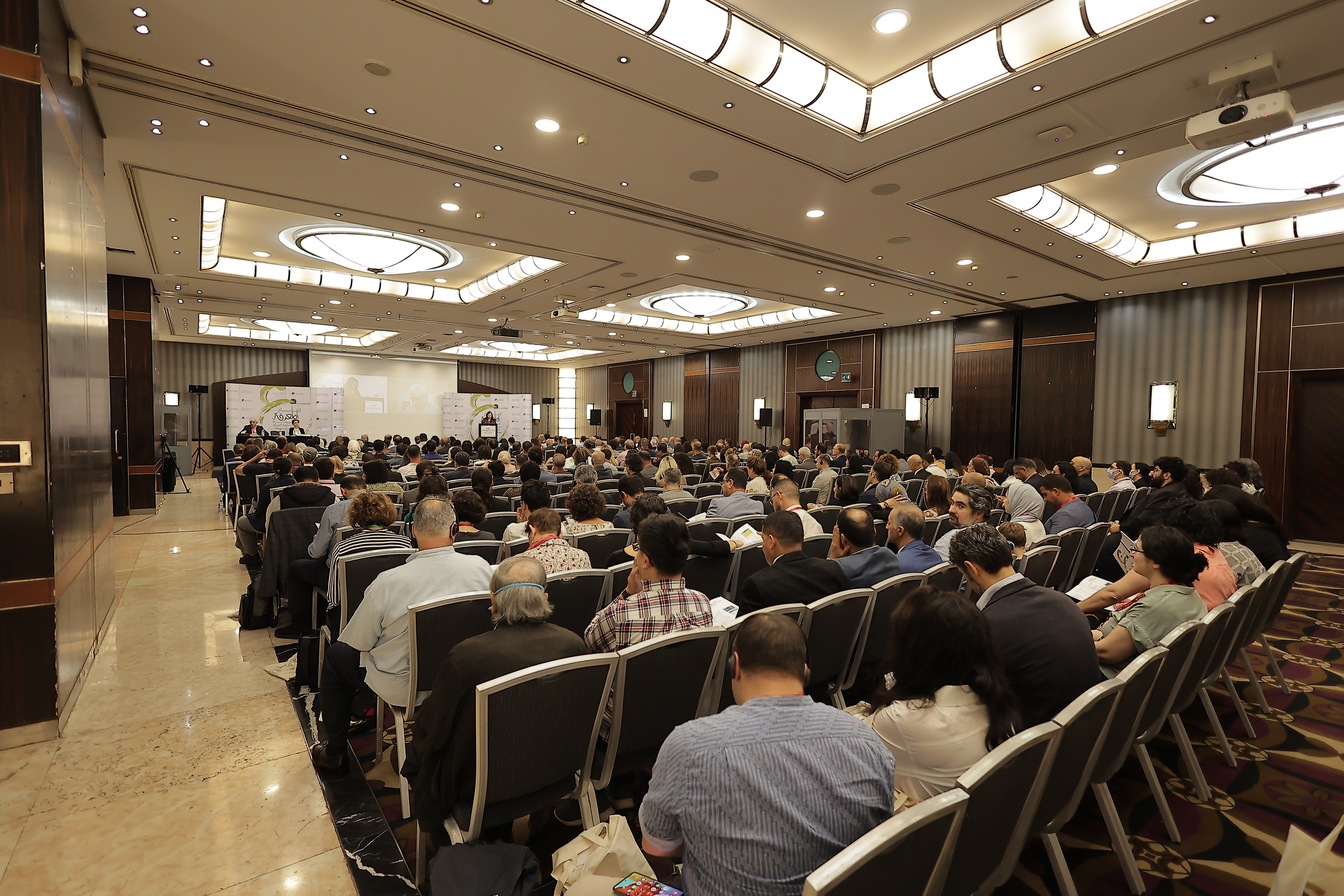
The Arab Council for the Social Sciences (ACSS) held its Sixth Conference, titled “Producing Critical Knowledge in the Arab Region” in Beirut, Lebanon on May 25-28, 2023.
The conference brought together close to 400 researchers from the Arab region and the world, as well as the ACSS Board of Trustees, representatives of donor organizations, university presidents, deans, and faculty members in prominent universities around the region.
Papers presented at the conference were organized around four main themes as follows: Legacies of Critical Knowledge(s); Dismantling Colonialist Epistemological Structures; Memories and Popular Culture; and Locations of Thought Production. The conference featured 8 roundtables and 64 panels during which researchers presented their research papers.
The conference included a keynote delivered by Syrian writer Yassin Al Haj Saleh, titled “The Undeniable and the Unbelievable: Ideology and the Trinity of the Exceptional, the Impossible and the Horrible”. The session was moderated by Mohammed Bamyeh (Former ACSS BoT Chair) and Elizabeth Suzanne Kassab (Current ACSS BoT Chair). The Conference also featured a plenary on “Theorizing from the South: Transregional Perspectives” which included Godwin Murunga (Executive Secretary of the Council for the Development of Social Science Research in Africa/CODESRIA), Karina Batthyány (Executive Director of the Latin American Council of Social Sciences/CLACSO), Driss Ksikes (HEM – LCI Morocco, and member of the Conference Organizing Committee) and Fadi Bardawil (Duke University, also member of the conference organizing committee). The conference concluded with a closing session of the ACSS Annual Lecture Series honoring late Moroccan writer and sociologist Fatema Mernissi, during which the three lecturers of the series, Asmae Benadada (Sidi Mohamed Ben Abdellah University, Fes, Morocco), Omaima Abou-Bakr (Cairo University) and Zeina Zaatari (Arab American Center for Culture and Arts, University of Illinois, Chicago) presented summaries of their main lectures.
The conference also included other activities, such as poster sessions by the ACSS New Generation of Social Scientists Program fellows, workshops, book exhibits, archives of prestigious Arab periodicals by “Alfurat for Publishing & Distributing”, “Meet the Author” sessions featuring Pascale Ghazaleh’s book “Journey in Search of May”, Ali Abdellatif Hamida’s book “The Libya we Don’t Know”, Zahra Ali’s book “Women and Gender in Iraq” and Abdel Ahad Sebti’s book “From the Year of the Elephant to the Year of the Americans: Oral Memory and Historiography”.
The conference also featured a booth devoted to the ACSS publications that are free and open access for all and constitute important knowledge resources for researchers.
In her welcome, the ACSS Director General, Seteney Shami, stated that “The theme of the conference reflects the continued desire of the ACSS to promote new approaches and paradigms emerging from across the disciplines of the social sciences and humanities, and to better understand the constraints and potentials of knowledge production in the Arab region”. She added that “As ACSS enters its second decade, we are soberly cognizant of the need to plan and implement our mission and our programs in a context of continuous crisis: political upheavals, economic recession, social unrest and environmental degradation. These will stay with us for a long time. Crisis can no longer be seen as a “time out of time”, with a beginning and an end. Plans must not be postponed until we “return to stability. Crisis is an enduring condition that shapes our circumstances from the minutiae of everyday life to our visions of the future”. She concluded by saying that “The ACSS conference has developed and become an important forum for researchers to critically discuss, evaluate and ponder the shape of things past, and the things to come”.
The biennial conference is one of the most significant public activities organized by the ACSS. It is an important opportunity to welcome a large number of researchers in the fields of social sciences and humanities from the Arab region and around the world, to present their papers, promote discussions and networking, and open new theoretical and methodological horizons.
